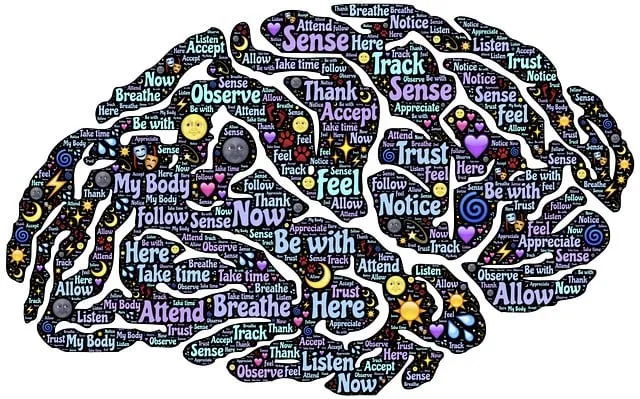Cultural competency training is vital for Kaiser Permanente's mental health professionals in diverse communities like Colorado Springs, where they cater to patients with varied cultural backgrounds. This training equips staff with skills to offer personalized, sensitive care, understand and accommodate unique cultural practices, reduce barriers to treatment, enhance patient satisfaction, and mitigate burnout. Through workshops, coaching, and tools like the Mental Wellness Podcast Series, Kaiser Permanente can improve patient outcomes, access, and provider job satisfaction in its Colorado Springs mental health jobs program.
In the diverse landscape of healthcare, cultural competency is no longer a nice-to-have but an imperative. This is especially true for mental health providers, such as those at Kaiser Permanente mental health jobs in Colorado Springs, where understanding and respecting patient backgrounds and beliefs can significantly impact treatment outcomes. This article explores the vital role of cultural competency training, its positive effects on patient care and provider satisfaction, and practical strategies to implement effective programs within mental health settings.
- Understanding Cultural Competency in Healthcare: A Need for Kaiser Permanente Mental Health Jobs Colorado Springs
- The Impact of Cultural Competency Training on Patient Outcomes and Provider Satisfaction
- Strategies for Implementing Effective Cultural Competency Programs in Mental Health Settings
Understanding Cultural Competency in Healthcare: A Need for Kaiser Permanente Mental Health Jobs Colorado Springs

Cultural competency in healthcare is a vital aspect that Kaiser Permanente mental health jobs Colorado Springs cannot afford to overlook. In today’s diverse society, it’s essential for healthcare providers to understand and appreciate the cultural differences of their patients, especially when addressing their mental health needs. This involves recognizing and respecting unique beliefs, values, and practices that may shape an individual’s perception of wellness and illness. For instance, a patient from a different cultural background might have specific rituals or traditional healing methods they prefer for managing stress and improving self-esteem.
By incorporating cultural competency training into the curriculum for Kaiser Permanente mental health jobs Colorado Springs, healthcare providers can learn effective communication strategies, gain insights into various cultural perspectives, and develop skills to provide culturally sensitive care. This is particularly crucial in preventing burnout among healthcare professionals, as they will be better equipped to handle a diverse range of patients and their unique needs. Moreover, such training can enhance the overall patient experience by fostering trust, encouraging open dialogue, and ultimately improving outcomes for individuals seeking mental health support.
The Impact of Cultural Competency Training on Patient Outcomes and Provider Satisfaction

Cultural competency training is a vital tool for healthcare providers, particularly in diverse communities like Colorado Springs, where Kaiser Permanente offers mental health jobs. This type of training equips professionals with Mind Over Matter Principles to navigate complex cultural landscapes and better serve their patients. By fostering understanding and empathy, it enables them to deliver tailored care that addresses unique needs and challenges.
The benefits are far-reaching. Enhanced cultural competency leads to improved patient outcomes through increased access to services and higher levels of satisfaction. Research suggests that trained providers are more effective in implementing Stress Reduction Methods and Social Skills Training, fostering safer, more supportive environments for patients from various backgrounds. This, in turn, boosts provider job satisfaction, as they feel better equipped to handle the nuanced demands of their practice.
Strategies for Implementing Effective Cultural Competency Programs in Mental Health Settings

Implementing effective cultural competency programs in mental health settings requires a multi-faceted approach tailored to address diverse patient populations. At Kaiser Permanente mental health jobs in Colorado Springs, for instance, training should encompass educational workshops, ongoing coaching, and exposure to varied cultural experiences. These strategies can help professionals gain insights into different worldviews, belief systems, and communication styles, fostering more empathetic interactions with patients from diverse backgrounds.
One innovative approach is integrating the Mental Wellness Podcast Series Production as a tool for continuous learning. By listening to podcasts featuring discussions on mental health within various cultural contexts, staff can enhance their understanding of Mind Over Matter Principles. This complements role-play scenarios and case studies, enabling practitioners to build confidence in navigating complex interpersonal dynamics. Such initiatives not only promote cultural competency but also contribute to improved patient outcomes and satisfaction.
Cultural competency training is a vital tool for improving patient outcomes and provider satisfaction, particularly within specialized settings like Kaiser Permanente mental health jobs in Colorado Springs. By equipping healthcare providers with the skills to navigate diverse cultural backgrounds, these programs foster inclusive care environments. The strategies outlined, tailored specifically for mental health settings, offer a roadmap for organizations aiming to enhance their services and better serve their communities. Investing in such training is not just beneficial; it’s essential for providing compassionate, effective, and culturally sensitive healthcare.

